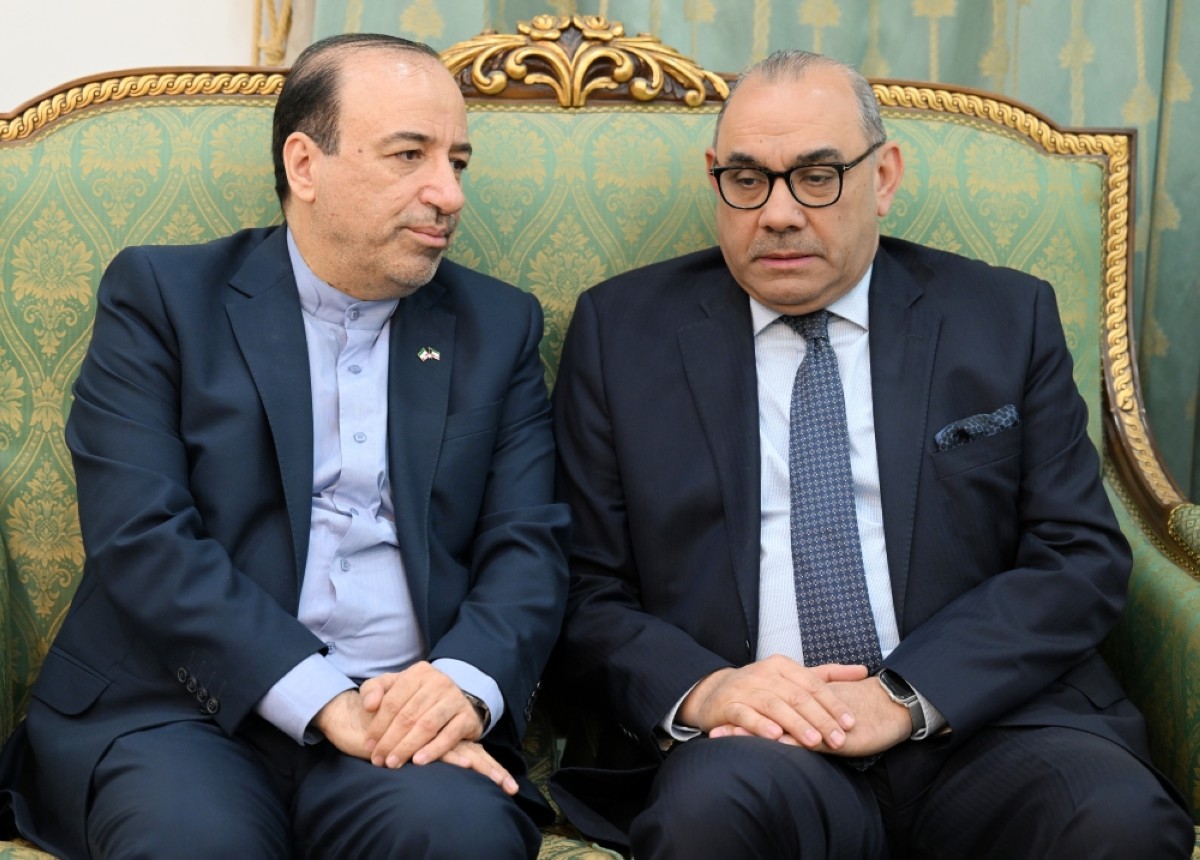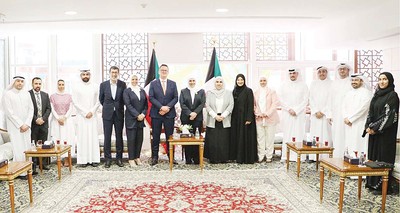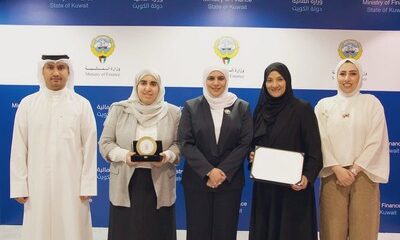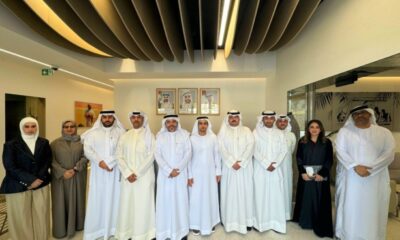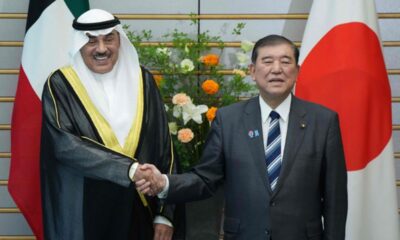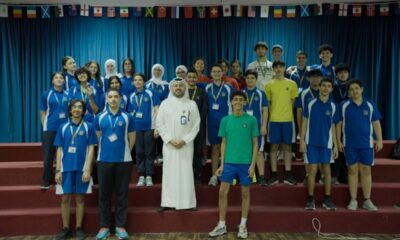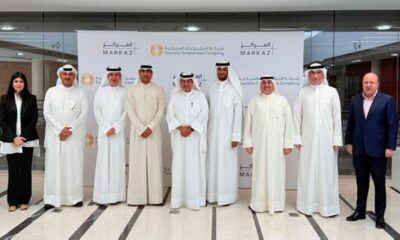RIYADH: Kuwait has joined the newly established Global Water Organization as a founding member. On Wednesday, Minister of Electricity, Water, and Renewable Energy Dr Sabeeh Al-Mukhaizeem signed Kuwait’s charter of accession during a ceremony held in Riyadh at the Saudi Ministry of Environment, Water, and Agriculture. The event was inaugurated by Saudi Foreign Minister Prince Faisal bin Farhan Al Saud.
Joining Dr Al-Mukhaizeem in signing the charter were several ministers and international officials involved in water-related issues, including Saudi Minister of Environment, Water and Agriculture Abdulrahman Al-Fadhli, Pakistan’s Minister for Water Resources Muhammad Moeen Wattoo, Senegal’s Minister of Agriculture Mabouba Diagne, Mauritania’s Minister of Water and Sanitation Amal Maouloud, Qatar’s Minister of State for International Cooperation Maryam Al-Misnad.
In his opening remarks, Saudi Foreign Minister Prince Faisal bin Farhan emphasized the importance of the Global Water Organization in addressing global water issues comprehensively, stressing the need for collective action to achieve shared goals. He confirmed that Saudi Arabia will continue working with its partners to achieve the organization’s objectives by providing financial and logistical support for the next five years.
He stated: “The launch of the Global Water Organization affirms Saudi Arabia’s commitment to promoting international initiatives and addressing global challenges through partnerships based on mutual cooperation among nations and governments,” adding that the Kingdom envisions the organization as an international platform to promote sustainable solutions and help developing countries enhance their water capabilities.
He invited all UN member states and private sector institutions to join the organization and make it a practical and inclusive platform to address water challenges and develop innovative, sustainable solutions for the global water sector.
Saudi Minister of Environment, Water and Agriculture Abdulrahman Al-Fadhli said that signing the Global Water Organization’s charter and launching its operations from Riyadh reinforces a shared international responsibility to conserve water resources. He added that the significance of the organization stems from the fact that water is not only a resource but also a source of economic and social development and global stability.
He explained that the organization is not merely a platform for gathering countries but serves as a collective global mind working to integrate and develop the efforts of countries and organizations to tackle water challenges holistically. It also supports technological solutions, scientific research, and facilitates funding to enhance transparency in water management, affirming the Kingdom’s pioneering role in launching ambitious global initiatives.
Al-Fadhli noted that the Global Water Organization is a tool for leading international efforts to confront water-related challenges and to shift traditional thinking in managing water. He emphasized that the challenges go beyond water scarcity to include timely and appropriate availability, as well as water’s impact on the global economy, public health, food security, and supply chains amid climate change and related disasters.
He highlighted the need for integrated services including production, transport, storage, distribution, treatment, and reuse, and the adoption of innovative water economics based on cost-benefit analysis, new financing models, and reduced reliance on government subsidies, with strong private sector involvement.
He also stressed the importance of creating an attractive investment environment by reducing risks, adopting reliable privatization models, and supporting eco-friendly engineering research and technologies through green funds. Furthermore, he underlined the importance of adapting financial and engineering models to the specific needs of each country to make water a driver of growth and to accelerate global solutions under the circular economy concept and by utilizing non-traditional resources.
The Global Water Organization represents a turning point in international cooperation on water issues. Through research and development programs, knowledge sharing, and innovative solutions, it aims to promote water sustainability worldwide. The organization’s mission includes supporting countries and institutions in addressing water challenges holistically by exchanging technical expertise, fostering innovation and R&D, and enabling the development and financing of priority projects to ensure water resource sustainability and equitable access. — KUNA




